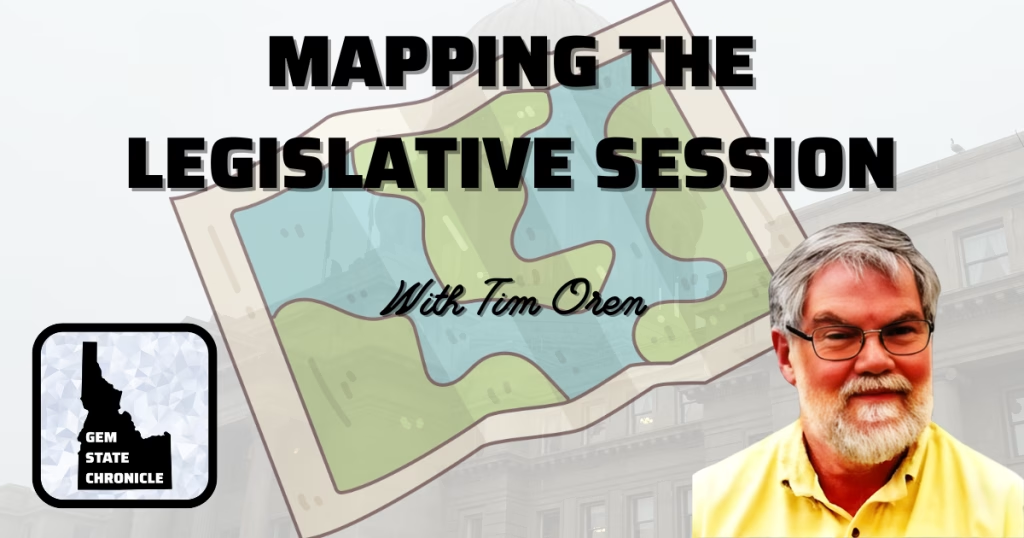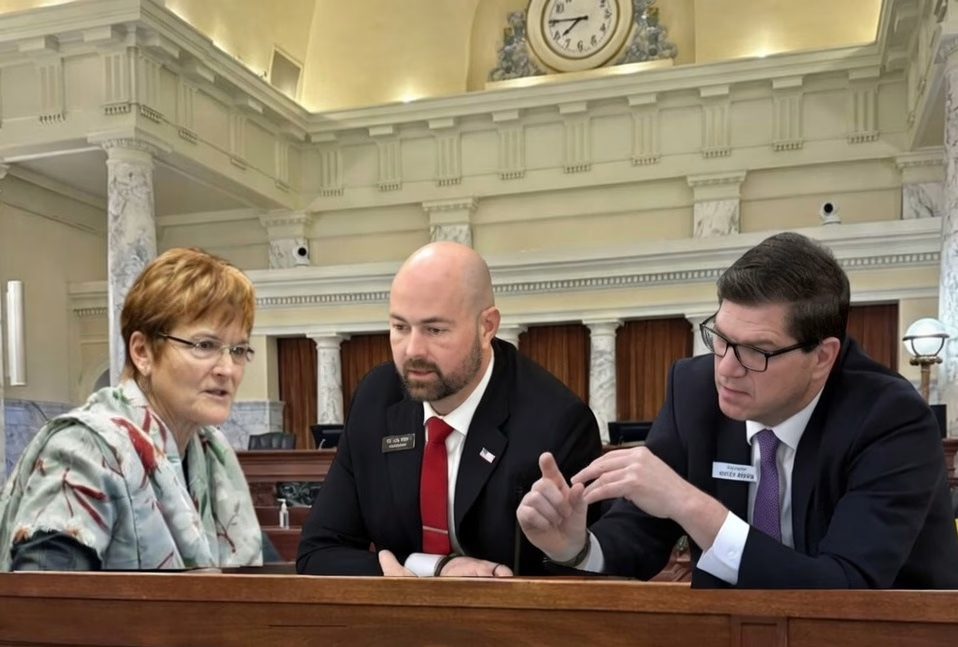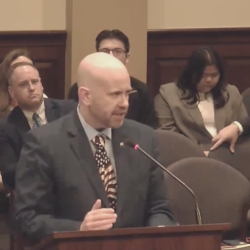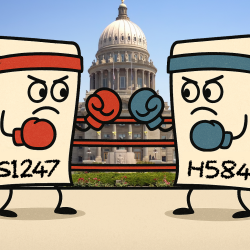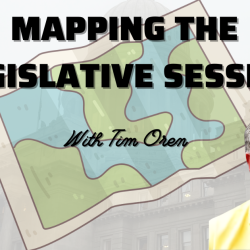Last March, in the final weeks of the 2025 legislative session, Reps. Jaron Crane and Jordan Redman introduced House Bill 364, which would have established a DOGE task force within the Idaho Legislature. DOGE, coined by Elon Musk as the Department of Government Efficiency, quickly became a buzzword among government reformers and fiscal hawks, though its failure to deliver on its lofty promises at the federal level has left many disillusioned.
Despite passing the House 43–23–4, the Senate declined to take up H364. Nevertheless, after the session concluded, Republican leaders from both chambers issued a joint press release announcing the formation of a DOGE task force. According to the release, the task force will focus on three main priorities:
The D.O.G.E. Task Force will focus on three primary areas of concern:
- Government Agency Consolidation – Evaluating and implementing strategies to merge redundant agencies and optimize resources.
- Government Employee Travel – Reviewing and reducing unnecessary state-funded travel to cut costs.
- Eliminating Unnecessary State Government Employee Positions – Assessing and restructuring government roles to ensure taxpayer dollars are spent efficiently.
House Speaker Mike Moyle and Senate President Pro Tempore Kelly Anthon each appointed four members to the task force, which will meet for this first time this Friday:
- Sen. Todd Lakey, co-chair
- Sen. Carl Bjerke
- Sen. Camille Blaylock
- Sen. Carrie Semmelroth
- Rep. Jeff Ehlers, co-chair
- Rep. Heather Scott
- Rep. Dustin Manwaring
- Rep. Josh Tanner
Despite jumping on the DOGE train following President Trump’s election last fall, Sen. Glenneda Zuiderveld denounced the task force this week, arguing that lawmakers need more courage, not more committees:
How will this Task Force be any different from JFAC? When they present their findings to JFAC next session, what will actually come of it? Will the committee take real action or will it be another 1-to-19 vote when it comes to cutting spending, reducing government growth, or holding agencies accountable for misusing your tax dollars?
At the end of the day, we can only hope this task force produces real outcomes not more reports that collect dust but real results that truly benefit the people of Idaho.
I completely understand Sen. Zuiderveld’s skepticism. It’s long been said that the fastest way to ignore a problem is to assign it to a committee. Yet last year’s interim committee on DEI ultimately laid the groundwork for Sen. Ben Toews’ excellent bill, which was signed into law by Gov. Brad Little on the final day of the 2025 session. So I’m willing to take an optimistic stance.
On a deeper level, I believe there’s significant confusion about what DOGE actually means. Activists of all stripes tend to project their own priorities onto it. Libertarians, for example, assume DOGE implies eliminating most or all government entirely.
Sen. Zuiderveld’s critique focuses almost exclusively on the fiscal aspect and asserts that any worthwhile reforms could—and should—have been handled by JFAC, the Joint Finance-Appropriations Committee. But while cutting spending is certainly one facet of the DOGE concept, I believe it’s only part of the picture, one that was significantly oversold by Elon Musk in the months leading up to Trump’s inauguration.
The E in DOGE stands for efficiency, not elimination. While efficiency can and should involve spending reductions, it also encompasses consolidating agencies, streamlining processes, reducing bureaucratic friction, and breaking down silos—reforms that go beyond simply slashing budgets.
It’s the nature of any organization—whether in government or the private sector—to grow beyond its original size and scope. A factory making widgets, for example, will naturally expand until its administrative staff eventually outweighs its productive workers. Economists call this a diseconomy of scale. Reform must be a continuous process of trimming the fat and refocusing on the core mission. Government is no different. Every few years, we must ensure our agencies remain committed to their core constitutional purposes, while cutting away what is duplicative, inefficient, or unnecessary.
Do we have a long way to go in reforming our government to the point where it truly represents conservative principles? Definitely! But we have to start somewhere.
Some activists have echoed Sen. Zuiderveld’s concerns, pointing to the relatively low Idaho Freedom Foundation Spending Index scores of the appointed task force members. But I would argue those scores don’t tell the whole story. Not a single budget received a positive score this year, and only 27% were even rated zero. The highest-scoring lawmakers were those who voted against nearly every budget. That’s fine if you believe the budgets are too large, but those scores can’t measure the painstaking work of combing through budgets line by line to find cuts, or recognizing when a budget is the best realistic option.
If you were assembling a team to examine state government with a fine-toothed comb and recommend improvements, would you rather include someone who votes “no” on every budget, or someone who has a deep understanding of the inner workings of state agencies? Rep. Josh Tanner, for example, saw his Spending Index score drop to 54.5% this year, yet I can think of no lawmaker better equipped to take a chainsaw to our state government.
Back in February, I wrote about ways in which the Legislature was already working to streamline government operations:
While cutting taxes and reducing spending are extremely important endeavors, so is reforming the Byzantine rules and statutes that have grown like ivy throughout out state over the past century. This project might not be flashy but it needs to be done, and I commend our Legislature for taking these important steps.
Returning to the press release, legislative leadership’s stated goals—consolidating agencies, reducing travel expenses, and eliminating unnecessary positions—may not lead to sweeping reform, but they are worthwhile nonetheless. We should temper our expectations, lest we consider any result insufficient, but we should also hold the committee accountable to its mission.
The DOGE Task Force will hold its first meeting on Friday, July 25, 2025, at 2:00 p.m. MDT in the Capitol. Click here to view the agenda. The first hour will include an overview of state agencies, followed by a presentation from Arkansas officials who will share their own government efficiency efforts. The State Controller’s Office will also explain how to use the Transparent Idaho platform. Around 3:30 p.m., the committee will take public testimony. Those attending in person must sign up using a sheet in the hearing room. Those wishing to testify remotely may do so via this link.
Sen. Zuiderveld and other critics might well be correct that this interim committee could be nothing more than a waste of time. But what if it isn’t? What if this task force becomes the spark for the most meaningful reform of Idaho’s state government in over 50 years? I’m willing to give it a chance. We’ll see the results soon enough, when the task force’s ideas become bill drafts in the next legislative session.
I plan to attend the meeting on Friday. Perhaps I’ll see you there.
Gem State Chronicle is a reader-supported publication. To receive new posts and support my work, consider becoming a free or paid subscriber.
About Brian Almon
Brian Almon is the Editor of the Gem State Chronicle. He also serves as Chairman of the District 14 Republican Party and is a trustee of the Eagle Public Library Board. He lives with his wife and five children in Eagle.




